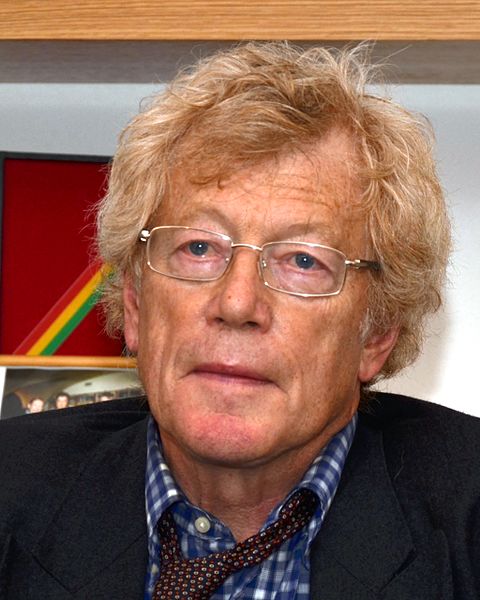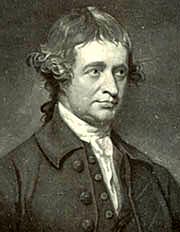Scrutinising Scruton - what is conservatism?
by Alex Mitchell
The aesthete and intellectual provocateur Roger Scruton, who died aged 75 in January, rose to prominence in the 1980s “at the height of Margaret Thatcher’s reign of terror” (as he described it in his characteristically flippant prose). (1) An Oxford academic, he had published a no-holds-barred polemic against the Thinkers of the New Left (1985). He founded and edited The Salisbury Review with the financial backing of the sixth Marquess of Salisbury, a right-wing Tory peer, as a competitor to the New Left Review. It was his life’s work to defend ‘conservatism’ as an intellectually respectable ideology against liberal and socialist ideas.
In a BBC talk in 2017, Scruton summarised his view of the main political ideologies thus: “Liberals seek freedom, socialists seek equality and conservatives responsibility.” (2) He argued that “conservatives believe in free association and private initiative … because they know that society itself depend upon them. It is through free association, and what Burke called the ‘little platoons’, that the sense of responsibility arises.” Paraphrasing the eighteenth century politician Edmund Burke, Scruton claimed he was not a reactionary, who wished to put the clock back, since “we must ‘reform in order to conserve’.” (3) The same idea is expressed in Tomasi di Lampedusa’s novel The Leopard, set in the Sicily of the 1860s: “If we want things to stay as they are, everything has to change.”
WHIGS AND TORIES
Conservatives are apt to lay claim to Burke’s authority for their views. The problem is that Burke was a Whig and never a Tory. As a friend of Adam Smith, Burke opposed the Corn Laws in support of competitive markets; he backed free trade between Britain and Ireland (to the benefit of his mercantile Bristol constituents). He defended the demands of the American colonies in 1775. He advocated the repeal of anti-Catholic penal laws; the abolition of slavery; the decriminalisation of sodomy; and restricting the sovereign’s powers. Towards the end of life, in 1791, he defected with William Pitt the Younger to form a Tory-backed government allied to the royal houses of Europe to prosecute the War of the Coalition against revolutionary France, but he always remained a Whig. Conservatives also prefer to forget his anti-democratic opinions concerning the threat of tyranny if the “swinish multitude”, the working poor, were able to vote. (4) Marx rightly castigated Burke a “sycophant … in the pay of the English oligarchy … [and] a vulgar bourgeois through and through.” (5)
The Tories have regularly absorbed liberals into their ranks along with their ideas. In the 1820s, nominally Tory MPs from urban constituencies supported a reformist programme promoted by George Canning, an MP for Liverpool from a Whig-supporting family who had joined Burke to back Pitt’s war cabinet, and who was briefly prime minister himself. These liberal-minded MPs declined to take the Tory party whip but were also opposed to the Whigs, whom they considered to have been insufficiently supportive of the wars against France; nor did they care for the Whigs’ demand for Catholic emancipation, a critical issue, of course, in Ireland and the North of England.
When Robert Peel, considered the founder of the modern Conservative Party, eventually repealed the Corn Laws in 1849, he relied on the Whigs for the votes to pass the legislation. Peel’s Tamworth Manifesto of 1834, which followed the Whigs’ successful campaign to reform Parliamentary constituencies and enfranchise property owners on a more or less equal footing, committed the Tories to “the correction of proved abuses and the redress of real grievances”. (6) Peel needed to cooperate with the Canningites and Whigs to get his reforms adopted.
Whigs and Tories had renamed their parties the Liberals and Conservatives by the end of the 1830s to broaden their electoral appeal. (7) After Peel’s death the remaining free trade Peelites, including future prime minister William Gladstone, joined the Liberals in 1859. Many former Whigs split from the Liberal Party in 1886 over Irish Home Rule and their faction then merged with the Conservatives in 1912. Joseph Chamberlain, the Tory urban reformer, was once a liberal, and Winston Churchill returned to the Conservative Party in 1924 after a twenty year career as a Liberal MP. The establishment of the Labour Party in 1906 eroded the Liberals’ support among the working class and by 1922 Labour had become the official opposition in Parliament. Henceforth the Conservatives consolidated the anti-socialist vote and took over from the Liberals as the UK’s main pro-capitalist party.
Whenever Scruton makes a case for a distinctive and coherent ideology of ‘conservatism’ we instead find liberalism. “Conservatism is about conserving things”, Scruton told his BBC listeners. But what are the things that should be preserved? “The good things that we admire and cherish”, was the answer. And what should we seek to reform? This was not answered. “Institutions, traditions and allegiances survive by adapting” to changing situations, Scruton wrote on another occasion in the New York Times. (8) Few would disagree with these points. The trouble is they do not amount to a coherent philosophy.
Liberals, and socialists, have clear ideas on why political and social change may be necessary to address the abuse of power and reduce inequality. It is what Burke meant when he called for the reformation of the state. The French revolution, according to this Whig view, occurred because the ancien régime had failed to reform. Unlike Britain there was no peaceful alternation of political power by which one party’s administration could redress the corruption or mistakes of its predecessor; there was no separation of powers between the judiciary, legislature and executive as envisaged in the American Constitution. All these are liberal ideas, not conservative, though the Conservative Party adopted them in due course.
DEFENDING PRIVILEGE
Conservatives often hark back to a phrase Burke used in his Reflections on the Revolution in France (1790): “To love the little platoon we belong to in society is the first principle (the germ as it were) of public affections. It is the first link in the series by which we proceed toward a love to our country and to mankind.” (9)
The misuse of this quotation by conservatives explains the notorious remark by Margaret Thatcher that “There is no such thing as society”. (10) Certainly, Burke does not deny the existence of society, nor even of a global society where all might find a place. But conservatives often invoke the ideal of the little platoons to justify loyalty to King (or Queen) and Country to the exclusions of other allegiances, to our class, community or humanity. It is the way conservatives seek to turn patriotic feeling into a mechanism to defend privilege and prejudice. According to Thatcher, we have no allegiance to society, but only to our family, to the civic associations to which we belong, and to the nation and its sovereign.
A sense of duty to the sovereign, respect for national tradition and a preference to keep things as they were, are important beliefs for conservatives. It explains ‘conservatism’ as a state of mind but they do not form a political philosophy. Once we strip away the liberal elements in conservative thinking, we find that nothing distinctive remains except an antipathy towards progress, rightly termed reactionary. There is no distinct and coherent set of ideas, shorn of the liberalism conservatives share with other liberals.
Roger Scruton’s defence of ‘conservatism’ ends up as being merely a defence of privilege and prejudice, the reactionary tenets of a political party under pressure from the labour movement for social advance. The slogan ‘to reform in order to conserve’, which Scruton relies on as the justification for conservative hostility to progressive policies, is a stratagem to appear to be in favour of change in order to keep things the same.
(1) Roger Scruton, 2016, Fools, Frauds and Firebrands: Thinkers of the New Left, London: Bloomsbury: p. vii.
(2)Roger Scruton, The Meaning of Conservatism, broadcast on BBC Radio 4 on 20 August 2017; transcript at <https://www.roger-scruton.com/images/pdfs/Conservativism-POV-1.pdf>.
(3)As above and Roger Scruton, 2017, Conservatism, London: Profile Books: p. 6.
(4)Burke, 1959, pp. 95 and 152-153. It sparked a rejoinder from radical surgeon and pamphleteer James Parkinson, the man who identified Parkinson’s disease: An Address to the Hon. Edmund Burke from the Swinish Multitude, 1793, London: J Ridgeway.
(5)Karl Marx, 1867, 1976 edition, Capital: A Critique of Political Economy, volume 1, Harmondsworth: Penguin: pp. 925-926.
(6) Derek Beales, 1971, From Castlereagh to Gladstone, 1815-1885, Sphere: pp. 23-24, 61, 74-75 and 115.
(7) Beales, 1971, p. 115.
(8) Roger Scruton, What Trump doesn’t get about Conservatism, New York Times, 4 July 2018.
(9) Burke, 1959, p. 55.
(10) Interview with Margaret Thatcher, Women’s Own, 31 October 1987.

Roger Scruton

Edmund Burke






